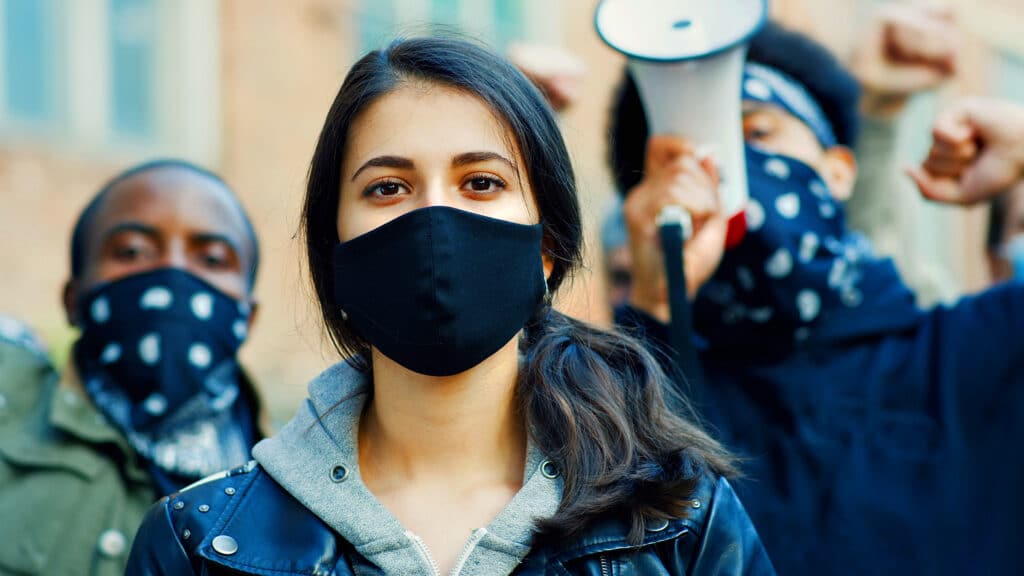
Here at GroupOne Background Screening, we’re not too hip to conspiracy theories. And we most certainly are not going to take sides with the recent protests taking place on U.S. college campuses. But we could not help but notice comments by Kevin O’Leary during a television interview last week. He stated artificial intelligence (AI), when used in background check processes, could identify anyone anywhere, to include masked protestors. Talk about Big Brother!
O’Leary, a judge on the TV show “Shark Tank,” said college students who participate in protests against Israel’s invasion of Gaza are, ahem, “tanking” their future career prospects.
He claimed the use of AI technology in background check processes can identify students according to physical movements and retinal scans, even if their faces are covered with masks. Yes, retinal-scanning exists in more than just the most recent Jason Bourne film, but accuracy varies quite a bit and is mainly (and expensively) deployed in military installations, nuclear facilities and high-caliber laboratories.
As we’ve stated in past blogs, AI technology can present privacy and accuracy concerns. And what happens if a person gets misidentified? It’s a valid question for employers considering the implementation of AI when making hiring decisions.
O’Leary said protestors were potentially destroying their future before entering the job market, with AI now having the ability to identify people by body movements and physicality.
Of course, the use of AI in hiring is nothing new. Today, there’s a flood of companies entering the field and deploying facial recognition software for security and hiring screenings.
In a fascinating 2020 study by researchers at Texas A&M, it was stated facial recognition technology actually makes background checks less accurate, and using it may expose employers to liability for discrimination.
O’Leary stated the rapid development of AI used in hiring will ultimately hurt college protestors before they even begin their careers.
“We do what’s called a deep, dark search,” O’Leary ominously said last week. “All of this imagery, all of this unedited film, is going to be online. So even if you’ve got a mask on, I’ll see your eyes in 4-K resolution.”
Quite a few college protestors have said that obscuring their faces is necessary in today’s age of camera technology, in order to avoid threats of “doxxing” (the act of revealing identifying information about someone online, such as their name, home address, workplace and phone) and online harassment.
Whether or not companies are going to scan protestors with AI technology and put them on a mysterious “blacklist,” we’re inclined to roll our eyes. At the same time, you should always be aware of your online presence. Footage of you fighting with police during a violent protest is never a good look, valid cause or not. Always be cognizant because, it’s a brave new world.
